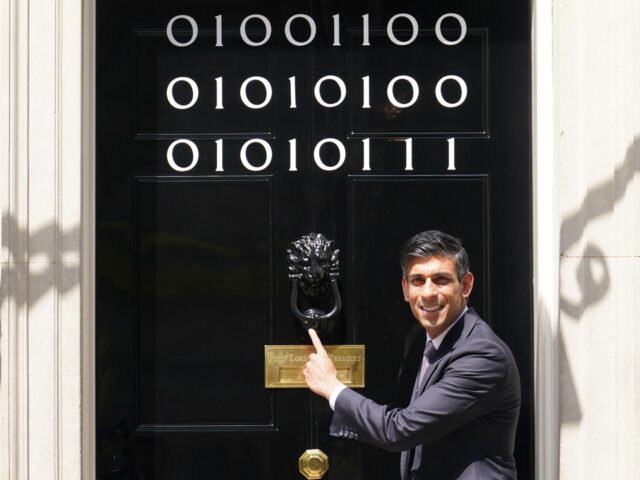The British government is reportedly preparing to plough £100 million of taxpayer cash into buying chips needed to train advanced artificial intelligence models, as Prime Minister Rishi Sunak pushes forward with his goal for the UK to become an A.I. “superpower”.
The government of Prime Minister Rishi Sunak has entered into discussions with leading tech manufacturers including AMD, Intel, and Nvidia for the potential purchase of thousands of high-end chips needed to power AI models in the hopes of transforming the British economy and keeping competitive on the world stage.
According to a report from The Telegraph, the UK has earmarked around £100 ($127) million to purchase as many as 5,000 graphics processing units (GPUs) from American tech firm Nvidia. The current version of OpenAI’s ChatGPT, which has been a leading force in the burgeoning artificial intelligence with its language-based model, was trained on approximately 25,000 Nvidia chips.
The government is also said to be in talks with other tech manufacturers to procure equipment to forge a national “AI Research Resource”, which is scheduled to become operational by next summer.
There have also been talks of establishing a “sovereign chatbot” along the lines of ChatGPT that could be used to increase efficiencies in state agencies like the persistently struggling National Health Service (NHS). Previous efforts to modernise the socialised healthcare system have floundered, however, including NHS IT, which wasted an estimated £10 billion before being scrapped altogether.
A government spokesman said: “We are committed to supporting a thriving environment for computing in the UK which maintains our position as a global leader across science, innovation and technology.”
It comes amid a wider effort from Prime Minsiter Rishi Sunak, who married into the tech elite of India, to radically transform the British economy, with Sunak also being one of the leading figures globally behind the push to introduce a Central Bank Digital Currency (CBDC), opponents of which warn will lead to increasing government control and surveillance of the public.
Great Reset: UK Prepares to Introduce a 'Digital Pound' Central Bank Digital Currency https://t.co/YXy5CnUskK
— Breitbart London (@BreitbartLondon) December 11, 2022
The government is seeking to position the UK as “a science and technology superpower” by the year 2030 with investments in AI and other computing equipment.
Recognising the potential pitfalls of the emerging technology, Sunak is also seeking to host an AI safety summit, in the hopes that the UK can become a standard-bearer in outlining the legal and ethical parameters for the use of artificial intelligence. The government has also set aside £100 million to fund a task force examining the safety of systems like ChatGPT and Google Bard.
“I get people are worried about AI. That’s why we are going to do cutting-edge safety research here in the UK,” Sunak said in June, adding that the government will seek “to ensure that wherever and whenever AI is put to use in the UK it is done safely and responsibly.”
However, despite the prime minister’s enthusiasm for artificial intelligence, there are still many logistical hurdles to overcome, chiefly the lack of advanced computing power on British soil.
While Chancellor Jeremy Hunt is set to provide academic computer scientists with £900m ($1.1bn) to build a new British supercomputer, most likely at the Edinburgh Parallel Computing Centre (EPCC). Yet, this project is not likely to be completed until at least 2026 and it is unclear if the centre has the experience necessary to build the GPU clusters required to train advanced AI models, the Economist noted.
One solution may be to rent space with leading cloud providers such as Amazon, Google, and Microsoft. This may not be feasible for many of the intended uses of AI, however, with it being unlikely that government bodies such as the Ministry of Defence and the NHS would be permitted by politicians or indeed the public to offshore critical data to the United States.
The UK, like many other advanced countries also faces the problem of tech-sector brain drain, with leading companies and talent often being bought up by American tech giants, such as DeepMind being bought up by Google and many of its employees moving to the United States.
A.I. ‘Risks Undermining the Fabric of Our Society’, Says Top British Spyhttps://t.co/2dOHT6MRUE
— Breitbart London (@BreitbartLondon) May 8, 2023

COMMENTS
Please let us know if you're having issues with commenting.